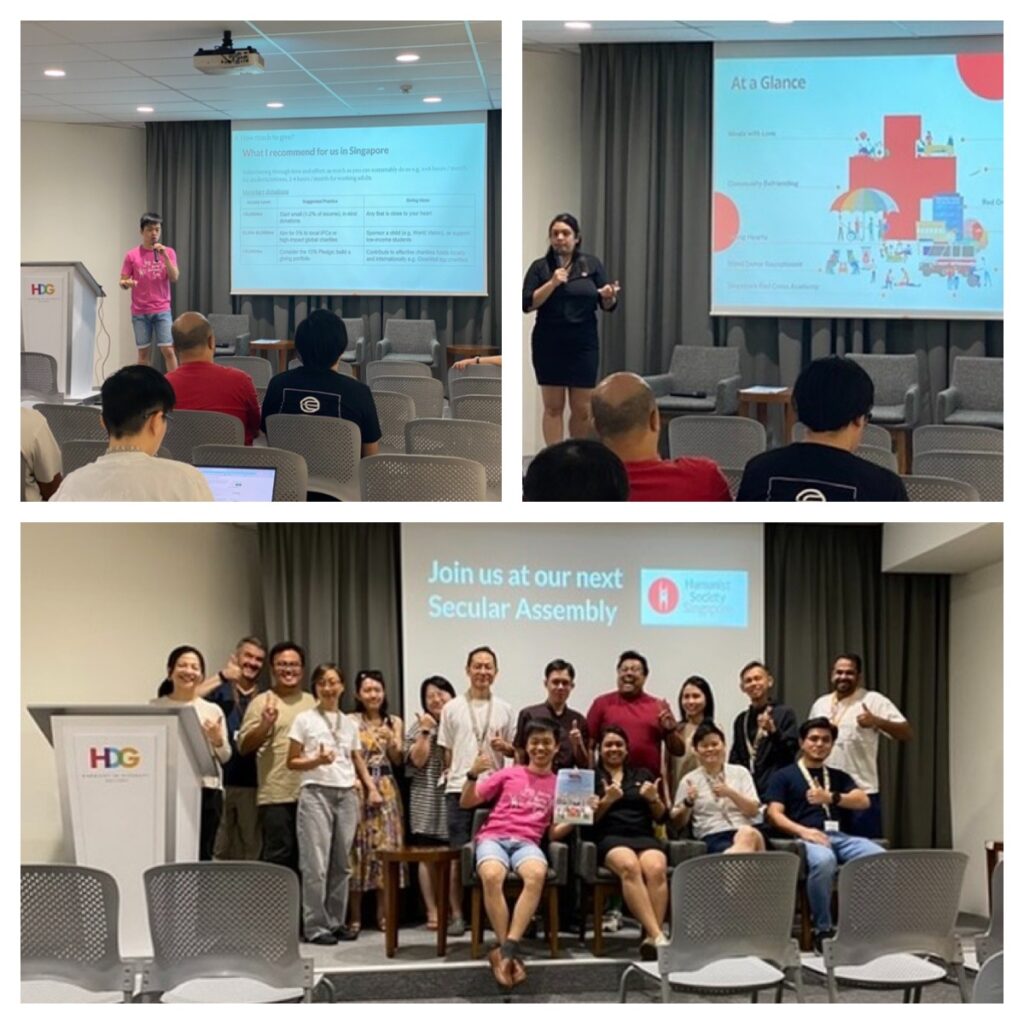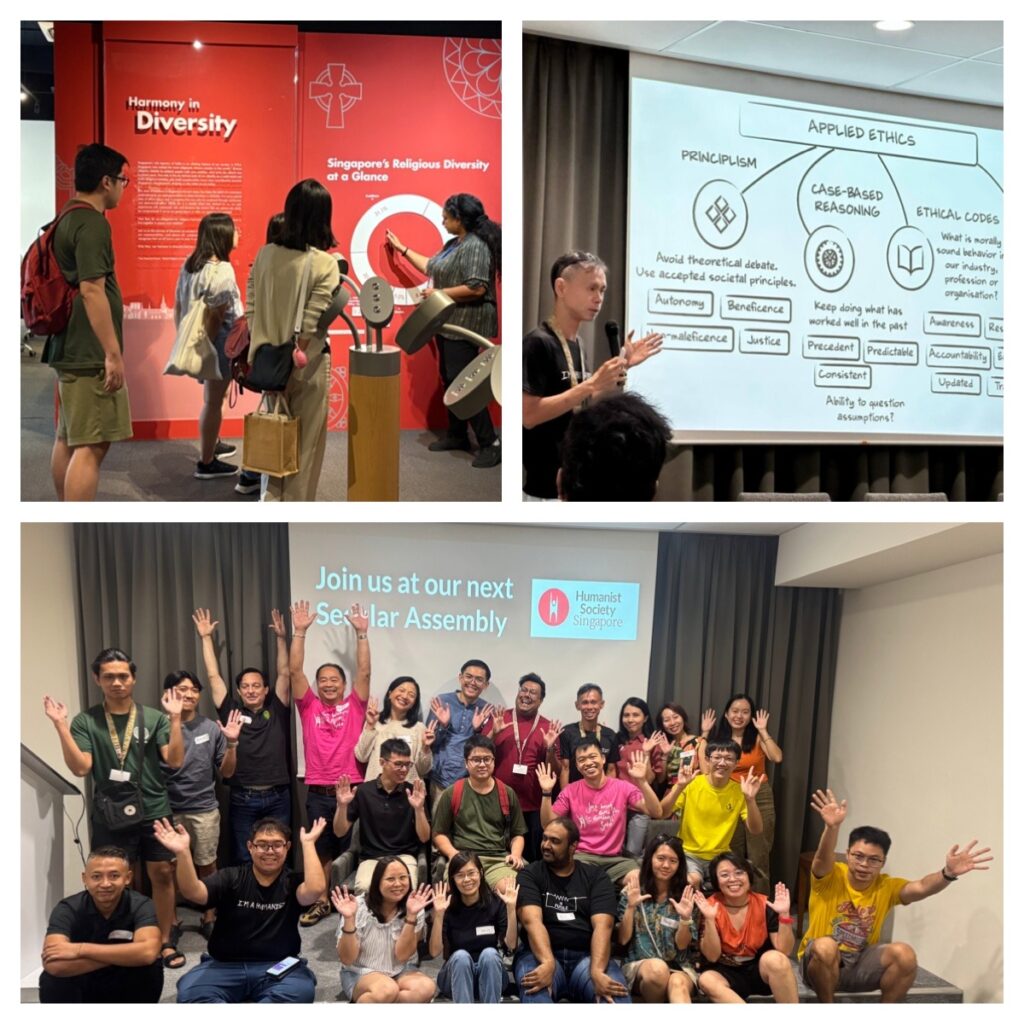Our fifth Secular Assembly of the year, held on 24 May, was on the theme of doing good – particularly, how reason and compassion can guide us to make real impact in the world.

The Assembly was preceded by an optional tour of the Harmony in Diversity gallery, which conveyed to participants the importance of maintaining harmonious ties among different belief groups in Singapore.
Following the tour, the main Assembly featured two engaging guest talks:
- A presentation on Effective Altruism, a powerful evidence-based approach to doing the most good, was delivered by HSS co-founder and Secular Assembly Programme Director Dan Thio. (Thanks to the Effective Altruism Singapore group, which generously shared reference materials that informed this talk!) Dan offered his own suggestions on how Effective Altruism principles could translate to the Singaporean context.
- Ain from Singapore Red Cross Singapore (SRC) gave an inspiring introduction to the initiatives undertaken by the humanitarian group in support of local and international causes. In Singapore, SRC extends helping hands to beneficiaries ranging from underprivileged children, who benefit from tutoring and other enrichment, to the vulnerable elderly who receive material and social support. This presentation nicely connected with the earlier talk by offering further real-world examples of worthy causes.
Attendees also took part in the Assembly’s traditions, such as a singalong session and a gratitude exercise that invited reflection on our interdependence. Join us at the next HSS event where we will continue to build the humanist community, and hopefully, a better world!





